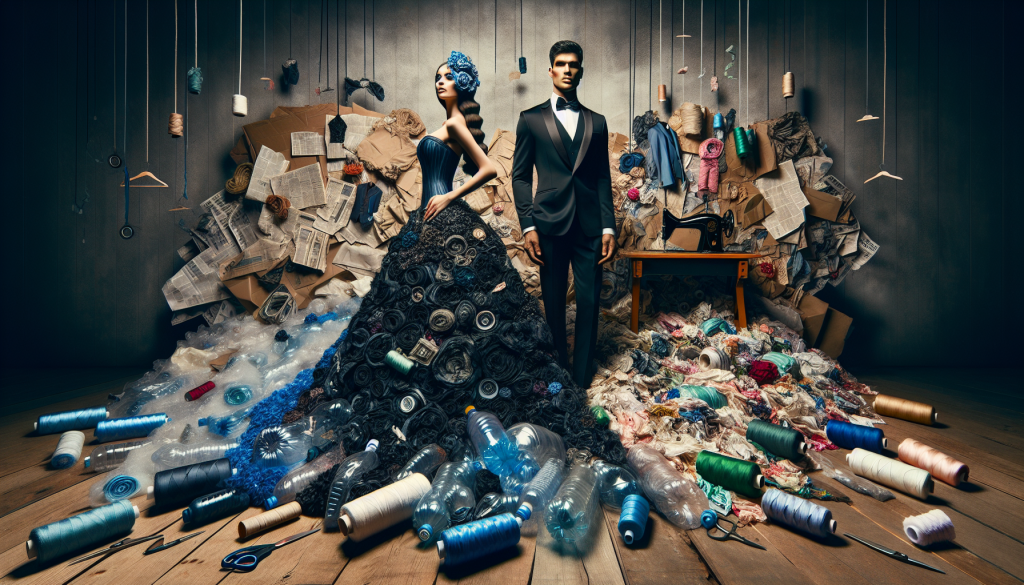
Upcycling: Trash to Treasure in the Fashion World
The Problem of Textile Waste
The fashion industry is one of the largest contributors to environmental pollution. Fast fashion, with its cheap and constantly changing trends, has led to a massive increase in textile waste. According to a report by the Ellen MacArthur Foundation, about 92 million tons of textile waste are generated each year, with a majority of it ending up in landfills or incinerators. This has a significant impact on our planet, as textile production is highly resource-intensive, consuming large amounts of water, energy, and chemicals.
Enter Upcycling
Upcycling offers a solution to this growing problem of textile waste. Unlike recycling, which breaks down materials into their basic components, upcycling uses existing materials and transforms them into something new and valuable. This not only eliminates the need for raw materials but also reduces the carbon footprint of fashion production.
Upcycling in the Fashion World
Many designers and brands have embraced upcycling and are making it a part of their production process. For example, renowned luxury brand Stella McCartney has been using sustainable and recycled materials since its inception. In 2012, they launched the “Green Carpet Collection,” which featured red carpet gowns made from upcycled fabrics. Similarly, Nike has also incorporated upcycled materials into its Flyknit shoes, reducing waste by 60%.
Trash to Treasure: Examples of Upcycled Fashion
Upcycling in the fashion world has no boundaries. From using old clothing to create new designs to repurposing materials like plastic and paper, the possibilities are endless. Designer Christopher Raeburn creates unique garments from decommissioned military parachutes and scrap materials. Another brand, Elvis & Kresse, uses discarded fire hoses to create stylish bags and accessories.
The Benefits of Upcycled Fashion
Aside from reducing waste and the carbon footprint, upcycled fashion has several other benefits. It allows for creativity and innovation, as designers have to work with existing materials and think outside the box. It also offers consumers one-of-a-kind pieces that cannot be replicated, promoting a sense of individuality and exclusivity. Additionally, upcycled fashion is usually made in small batches, reducing overproduction and excess inventory.
The Future of Upcycling
The future of upcycling in the fashion industry looks bright. With consumers becoming more aware of the environmental impact of their purchasing choices, there is a growing demand for sustainable fashion. This has led to an increase in upcycled fashion brands emerging in the market. Major fashion events and shows, such as London Fashion Week, have also started to showcase upcycled designs, bringing more attention to this eco-friendly trend.
The Time to Embrace Upcycling is Now
In conclusion, upcycling offers a unique opportunity to turn trash into treasure in the fashion industry. With its positive impact on the environment and the fashion world, it is a trend that is here to stay. So, next time you’re thinking of adding something new to your wardrobe, consider opting for upcycled fashion. You not only get a stylish and exclusive piece but also contribute towards a more sustainable future.
